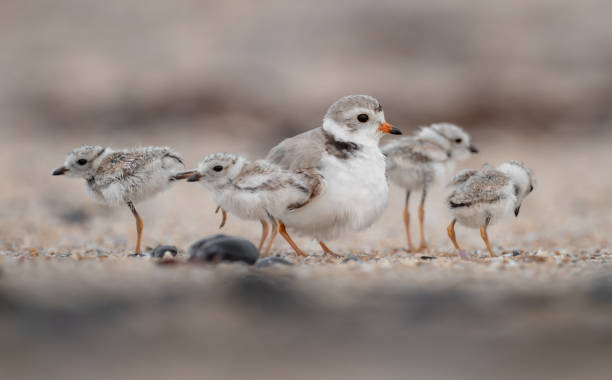
Finding Serenity Amidst the Frenzy: The Untamed Beauty of Cape Cod
The comings and goings of crowds and cars in a summertime spot like Cape Cod can easily fluster an unacclimated person. In an endless string of quaint summer homes and amidst throngs of beachgoers seeking the next holiday thrill, one can begin to feel ungrounded. But if the eye dares to settle amidst the commotion, it finds an immediate world that is still and peaceful. Cape Cod teems with wildlife, from the ocean to the marshland. Taking a moment to appreciate this helps offset the sometimes hectic atmosphere.
In the midst of the summer frenzy, nature swims its steady course, winding patiently around human complications. At Chatham Pier, where fishermen dock their boats, gray seals nimbly circle the hulls, their sleek bodies glinting in the sunlight as they snap up scraps and roll playfully in the cool currents. The salty breeze carries the laughter of these seals, their canine faces set around wide, dark eyes, ever watchful for a flash of silver in the ocean’s depths. Crowds gather in the parking lot and perch at the railings to watch the seals’ antics, while seagulls cavort on the fringes, diving into the waters when the mood strikes. Though the scene can unsettle one’s sense of calm and pull one into the currents of hustle and bustle, the innocence of the natural world maintains a delicate balance, indifferent to the human audience.
Often in life, we find ourselves stranded in a whirlwind, listing back and forth, desperate for footing. But persevering through discomfort can yield extraordinary results in unforeseen beauty. On a canted boat out at sea, hemmed in by the multitudes and caught in the excitement, perseverance can lead to the sight of humpback whales bursting forth in search of food, colliding with the surface in a great surge of whitecaps and spume. It’s a magnificent sight—both thrilling and humbling. To witness such giant creatures up close returns to the observer a momentary understanding of human significance—not just in the sense that, yes, in the grand scheme of the universe we are insignificant, or that we owe it to the victims of our human tampering to be better keepers of the earth—but also in the sense that we are co-possessors of this world, in a relationship with the forests, deserts, and oceans, and with our wild kin. With them, we originated from the dust, and back to it we all shall go. One would not suppose to come into contact with all this when embarking on a Barnstable Whale Watcher Cruise, nervous amidst the crowds, committed to tight quarters for a few hours. One would not expect to find, on such disconcerting, unsteady turf, a forgotten centeredness like a shadow under the enormous heft of a whale.
Small creatures also unearth sentiments massive in kind. Between the leaves of seagrass in the brackish waters of the Bass River, minnows dart after algae. Crabs populate crevices of stones adorned by barnacles and snails. Horseshoe crabs drift along the shallows. And festooning the skies, waters, and shores are seagulls, ducks, geese, sandpipers, and piping plovers. This intricate ecosystem, a wilderness right next to the yachters and sunbathers, must be carefully maintained, lest its intricacies unravel and disrupt Earth’s delicate balance. Many beaches on Cape Cod recognize the fragility of the piping plover, whose nesting season begins each March and April. A threatened species, these birds require precautionary measures to protect their nests and raise their young. At beaches like West Dennis Beach, summer beachgoers will find temporary fences posted around the dunes, as well as parking restrictions, to protect plover nests from interference. Towns like Barnstable might even cancel their Independence Day fireworks out of respect for these vital stabilizers of our coastal ecosystem.
On a kayak through the gentle currents of the Bass River, gliding across the smooth surface amidst all that stillness and peace, the grand collaboration of so many small-scaled critters becomes wonderfully apparent. Each creature shoulders its responsibility; all work together, sustaining not just their immediate environment but the health and wellbeing of the entire world. If creatures so small can have such a beautiful impact, imagine the goodness humanity could achieve!
Cape Cod’s wildlife offers a refuge to recharge one’s batteries before diving back into the throngs of the civilized world. If the eye seeks, it will find much more than just a place of natural beauty; it will find inspiration and extraordinary power.
(To help make the world a healthier place, visit www.necwa.org and donate to the New England Coastal Wildlife Alliance.)
(For more information and a captivating read, check out Carl Safina’s book The View from Lazy Point.)
Written by Jessica Moore